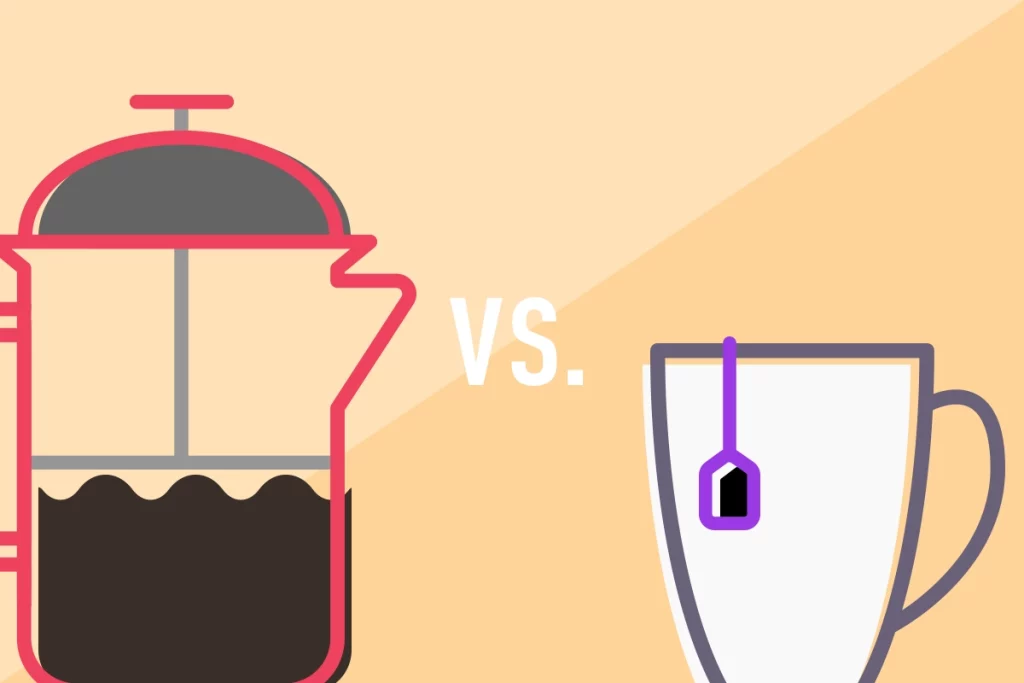Benefits of Black Tea vs Coffee
Introduction
When it comes to popular beverages, black tea and coffee have long been the top choices for many people around the world. Each drink offers a unique taste and aroma, but they also come with various health benefits. In this article, we will explore the advantages of black tea and coffee, highlighting their respective benefits and differences. Whether you are a tea enthusiast or a coffee lover, understanding the advantages of these beverages will help you make informed choices for your daily consumption.
Table of Contents
Health Benefits of Black Tea
Antioxidant Properties
Black tea is rich in antioxidants, particularly polyphenols, which help protect the body against free radicals and oxidative stress. These antioxidants have been linked to a reduced risk of chronic diseases, such as heart disease, cancer, and neurodegenerative disorders.

Heart Health
Regular consumption of black tea has been associated with improved heart health. The flavonoids in black tea help lower blood pressure, reduce LDL cholesterol levels, and improve blood vessel function, thus reducing the risk of heart disease.
Improved Digestion
Black tea contains compounds that promote healthy digestion. It can help alleviate digestive issues such as bloating, indigestion, and upset stomach. Additionally, black tea’s tannins can act as a natural remedy for diarrhea.
Lowered Risk of Diabetes
Studies suggest that black tea may help regulate blood sugar levels and reduce the risk of developing type 2 diabetes. The antioxidants in black tea help improve insulin sensitivity and glucose metabolism, contributing to better overall blood sugar control.
Enhanced Immune System
The polyphenols found in black tea have immune-boosting properties. Regular consumption of black tea can help strengthen the immune system, leading to a reduced likelihood of contracting common illnesses and infections.
Health Benefits of Coffee
Increased Energy Levels
Coffee is widely known for its ability to provide an energy boost due to its caffeine content. Caffeine stimulates the central nervous system, enhancing alertness, improving focus, and reducing fatigue. It can be particularly beneficial for those needing a pick-me-up in the morning or during a busy day.
Improved Cognitive Function
The caffeine in coffee not only provides a temporary energy boost but also improves cognitive function. It enhances memory, concentration, and overall mental performance. Additionally, coffee consumption has been associated with a reduced risk of neurodegenerative diseases like Alzheimer’s and Parkinson’s.
Antidepressant Effects
Coffee has been linked to a lower risk of depression and improved mood. The caffeine in coffee acts as a mild stimulant, increasing the production of neurotransmitters like dopamine and serotonin, which play a role in regulating mood.
Protection Against Diseases
Coffee contains various bioactive compounds that offer protection against certain diseases. Studies have shown that coffee drinkers may have a lower risk of developing conditions such as liver disease, type 2 diabetes, and certain types of cancer, including liver and colorectal cancer.
Caffeine Content
Black Tea
Black tea contains caffeine, although generally in lower amounts compared to coffee. The exact caffeine content can vary based on factors like the brewing time and type of tea leaves used. On average, an 8-ounce cup of black tea contains around 30-60 milligrams of caffeine.
Coffee
Coffee is known for its higher caffeine content. The caffeine concentration can differ depending on factors such as the brewing method and coffee bean type. A typical 8-ounce cup of coffee contains around 95-165 milligrams of caffeine.
Side Effects and Considerations
Black Tea
While black tea offers numerous health benefits, excessive consumption may lead to side effects due to its caffeine content. Some individuals may experience issues such as insomnia, restlessness, increased heart rate, or digestive problems. It’s important to consume black tea in moderation and be aware of its potential effects on personal health.

Coffee
Similar to black tea, excessive coffee consumption can result in side effects related to caffeine. Some individuals may be more sensitive to caffeine and may experience symptoms such as jitters, anxiety, digestive discomfort, or sleep disturbances. Moderation is key to enjoying coffee without adverse effects.
Personal Preference
Choosing between black tea and coffee ultimately boils down to personal preference. While both beverages offer unique health benefits, taste, aroma, and individual tolerance to caffeine play significant roles in determining which one is more suitable for an individual’s lifestyle and preferences.
Conclusion
Black tea and coffee are both popular beverages with their own set of health benefits. Black tea boasts antioxidant properties, promotes heart health, aids digestion, reduces the risk of diabetes, and enhances the immune system. On the other hand, coffee provides increased energy levels, improves cognitive function, has antidepressant effects, and offers protection against certain diseases. Understanding the benefits and differences between black tea and coffee allows individuals to make informed decisions based on their personal preferences and health goals.

FAQs
- Can black tea and coffee be consumed together?
- Yes, black tea and coffee can be consumed together, but it’s important to moderate the overall caffeine intake and consider individual sensitivity.
- Which is healthier, black tea or coffee?
- Both black tea and coffee have their own health benefits. The choice depends on personal preferences and individual health considerations.
- Can black tea or coffee help with weight loss?
- While black tea and coffee may slightly boost metabolism, they are not magic weight loss solutions. A balanced diet and exercise remain key for weight management.
- Are decaffeinated versions of black tea and coffee available?
- Yes, decaffeinated versions of black tea and coffee are commonly available, allowing individuals to enjoy the taste without the caffeine content.
- How should black tea and coffee be stored to maintain freshness?
- Black tea should be stored in an airtight container away from moisture and strong odors. Coffee should be stored in a cool, dark place in a sealed container to preserve its freshness.




